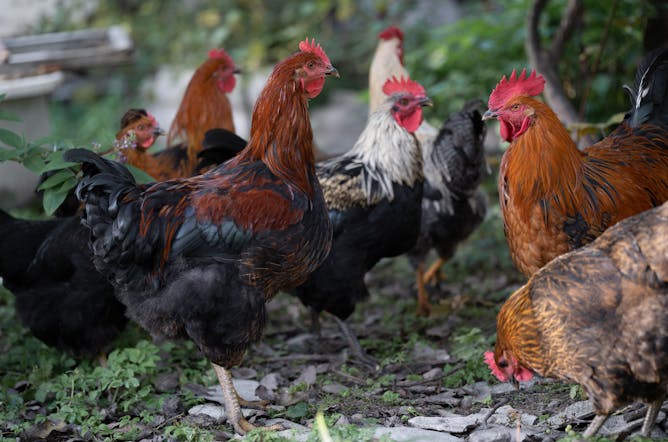|
On Friday, the UN’s International Court of Justice found that Israel must take action to prevent genocidal violence by its armed forces in Gaza and “prevent and punish” any incitement to genocide.
Today in The Conversation Canada, Heidi Matthews of Osgoode Hall Law School, Faisal A. Bhabha of York University and Mohammad Fadel of the University of Toronto explain what the decision means for Canada given its stated position that it disagrees with the premise of the case brought to the ICJ by South Africa.
Countries like Canada that are parties to the Genocide Convention have an obligation to prevent and a corresponding duty to act “the instant that the state learns of, or should normally have learned of, the existence of a serious risk that genocide will be committed.”
If Canada fails to uphold this responsibility, they write, it could amount to complicity in genocide.
Also today:
All the best,
|

Pro-Palestinian activists wave flags during a session of the International Court of Justice in The Hague, Netherlands on Jan. 26
(AP Photo/Patrick Post)
Heidi Matthews, York University, Canada; Faisal A. Bhabha, York University, Canada; Mohammad Fadel, University of Toronto
The recent ruling by the International Court of Justice means Canada could be guilty of supporting genocide in Gaza by cutting aid funding and continuing military exports to Israel.
|

While there are many benefits to sports participation, overstating those benefits can obscure systemic issues.
(Shutterstock)
Taylor McKee, Brock University; Janice Forsyth, University of British Columbia
In both mainstream and Indigenous communities across Canada, sport is neither inherently good nor bad. Rather, it is a tool that must be used responsibly.
|

One of two digitally drawn murals that are part of the installation and exhibit ‘who claims abstraction?’ by Toronto-based Guatemalan artist Francisco-Fernando Granados.
(Rachel Topham Photography)
Lois Klassen, Simon Fraser University
2024 is expected to be a year of elections around the world, and as often happens, anti-immigrant rhetoric is on the rise. Art can play a critical role in challenging that rhetoric.
|

Deepfakes pose a profound social threat, and education along with technology and legislation matters for containing and addressing this.
(Shutterstock)
Nadia Naffi, Université Laval
Youth in a study went from being passive deepfake bystanders to developing a sense of responsibility and readiness to help prevent deepfakes’ spread.
|

Like natural hormones, known as endogenous hormones, the artificial hormones contained in the pill, known as exogenous hormones, can have effects on the brain.
(Shutterstock)
Alexandra Brouillard, Université du Québec à Montréal (UQAM); Marie-France Marin, Université du Québec à Montréal (UQAM)
Oral contraceptives modify the menstrual cycle. What’s less well known is that they also reach the brain, particularly the regions important for regulating emotions.
|

Les poulets sont des communicateurs hors pair.
(Shutterstock)
Suresh Neethirajan, Dalhousie University
L’intelligence artificielle peut traiter un grand nombre de vocalisations de poulets et identifier des schémas dans les communications entre volatiles.
|
Environment + Energy
|
-
Richard B. (Ricky) Rood, University of Michigan
As the climate changes and weather warms, the freezing line is shifting, bringing rain and ice to regions not prepared for it.
|
|
Politics
|
-
Anthoni van Nieuwkerk, University of South Africa
A changing world order and global battles for power will derail the quest for peace in Gaza and the Middle East.
-
Wayne Unger, Quinnipiac University
In their Supreme Court brief, Colorado residents seeking to bar Trump from their state’s ballot say that ‘Trump intentionally organized and incited a violent mob to attack the US Capitol.’
-
Elis Vllasi, University of Tennessee
The fragility of peace settlements in the Balkans provides a cautionary tale. US and EU policymakers may inadvertently make matters worse by acceding to the aggressor’s territorial ambitions.
|
|
Science + Tech
|
-
Felippa Amanta, University of Oxford
Whether artificial intelligence leads to more or less energy use will depend on how we adapt to using it.
|
|